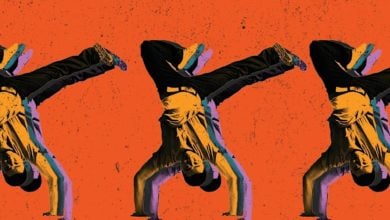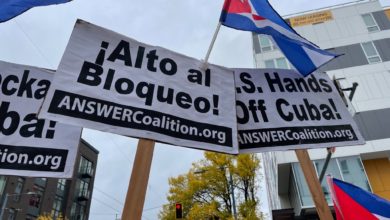Jorge Ricardo Masetti was an Argentinian born in 1929. He was the first director of Cuba’s Prensa Latina news agency before he disappeared carrying out revolutionary guerrilla organizing in Argentina in 1964.
In this article, Prensa Latina director Frank González discusses Masetti’s importance in setting up the news organization. It is based on a December 2006 interview with Socialism and Liberation’s Gloria La Riva and Carlos Alvarez.
Prensa Latina was created June 16, 1959, immediately after the triumph of the Cuban Revolution. It arose as a project of alternative communication with the objective of presenting a vision of Latin America’s reality—and especially that of the Cuban Revolution. It was a vision different from the construction of reality that the large media monopolies conveyed.

Prensa Latina was founded by a group of some 20 journalists from Cuba and other Latin American countries.
Its first director was Jorge Ricardo Masetti, an Argentinian journalist celebrated not only for his journalistic work but also for his involvement in revolutionary work in Latin America.
In the 1950s, Masetti worked in an Argentinian radio station. He traveled to Cuba in April 1958 with the aim of going to the Sierra Maestra mountains to interview the principal leaders of the Cuban Revolution. He wanted to familiarize himself with the Cuban Revolution, which was being carried out at that moment.
Masetti interviewed Commander Ernesto Che Guevara and Commander-in-Chief Fidel Castro. His encounter with Che, his Argentinian compatriot, had special meaning. From that point on, a close personal relationship and reciprocal influence developed between them.
It also marked the beginning of a radical change in the life of Jorge Ricardo Masetti. Up to that point, he had been a journalist who dreamed of and yearned for freedom. But his contact with the Cuban Revolution gave him a political outlook that was more and more progressive, more and more radical and all-encompassing.
Risking life for journalistic ethics
With all the risks involved in traveling to this area in the midst of the full-blown dictatorship of Fulgencio Batista, Masetti twice went into the Sierra Maestra.
The first time, he interviewed Fidel and Che. He conversed with them and with the many combatants who were part of a guerrilla column.
His material was transmitted to his radio station by the clandestine radio operated by the Rebel Army—Radio Rebelde.
But when he arrived in Havana, he discovered through a secret coded communication from his station chiefs in Buenos Aires that the material was not received—after he had destroyed his recordings, notes and materials.
Masetti found himself in a dilemma from a professional and ethical point of view—a journalist who lost all evidence and documentation to prove that what he had reported was true. He believed he could not take risks with such ethical implications or allow there to be distortions with what he was going to present.
So, without money, already exhausted by the first round-trip and all the vicissitudes he had to endure, Masetti decided to return to the Sierra Maestra.
He re-established his contacts. From Havana to the Sierra, we are talking about 600 miles, crossing police and army checkpoints and barriers. And as he got closer to the Rebel Army’s theater of operations in the mountainous zone, the police presence was much stronger.
Masetti went up into the mountains. He was able to interview the commanders Che Guevara and Fidel Castro again.
Identifying with revolution
He returned to Havana and then to Buenos Aires. His reports on what he saw in Cuba had a great impact in Argentina and the rest of Latin America. As soon as the Cuban Revolution triumphed on January 1, 1959, Masetti returned to Cuba. Upon his arrival, he made Cuba his adoptive homeland, identifying with the triumphant Cuban Revolution.
He had identified with it before. But now it was Cuba with a radicalizing process. As we all know, from its beginning it was a liberating, democratizing and agrarian perspective on a national scale that little by little advanced to the development of a socialist society.
The relationship between Masetti and Che was very close. The initiative to create Prensa Latina came from commanders Ernesto Che Guevara and Fidel Castro. It was they who thought of the need for Latin America to be able to count on a media organization that would present a vision of reality different from that of the media monopolies.
Masetti was a full-time journalist—a journalist by nature and by training. Early on, Masetti developed the norms and styles of the writing that Prensa Latina should follow. In one interesting document, speaking of the importance of our agency, he said, “The times of the 1950s are past, when the international news agencies, the monopolies reported, ‘A lone crazed Puerto Rican, committed an act of terrorism in the United States Congress,’ referring to Don Pedro Albizu Campos. Now, a news agency exists to tell the world, ‘A group of patriotic Puerto Rican revolutionaries, in defense of their desire for independence and sovereignty …’”
Prensa Latina founder Jorge Ricardo Masetti, pictured here with Che Guevara.




